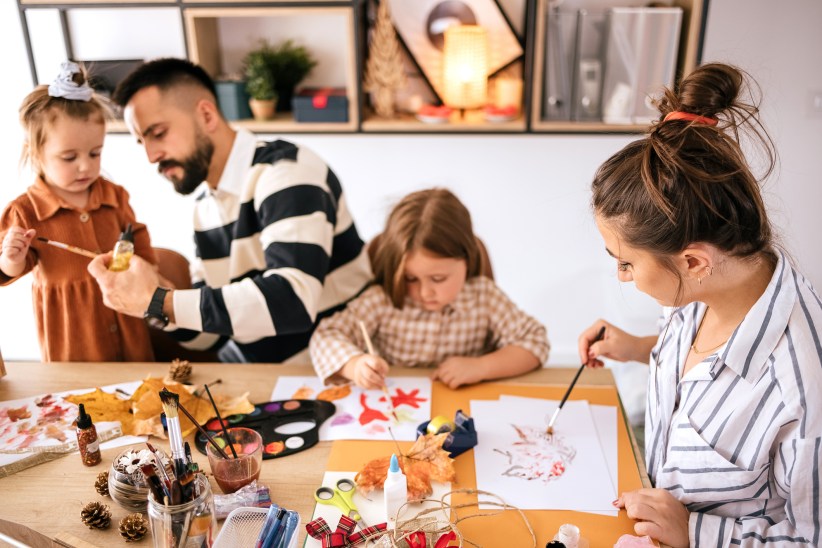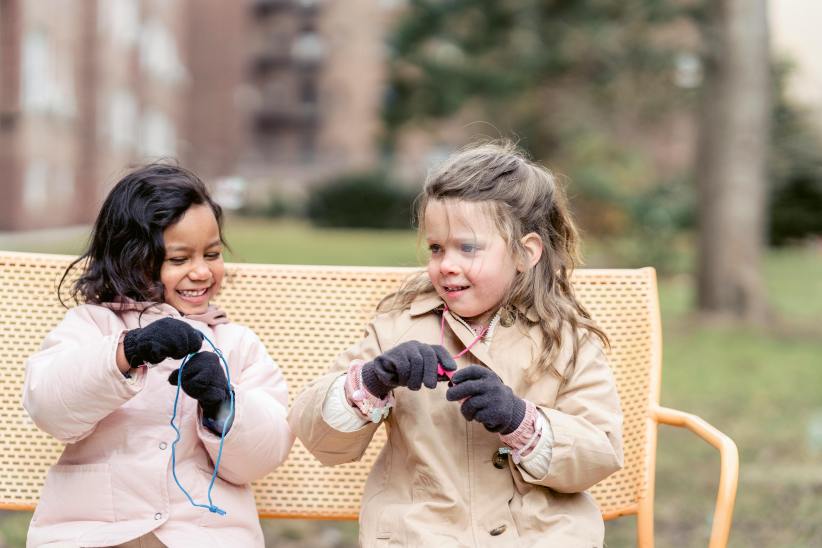Going to a sleepover camp is a milestone for children. Kids can make long- lasting friends and experience new ideas. They’ll eat foods that they woome uld have never tried at home and develop more self-confidence. Sleepover camp gives kids a great opportunity to learn new life skills, too. If your child is anxious about the thought of going away this summer, do some thinking, planning and talking now, so you can enrich your child’s experience before it even begins.
Is Your Child Ready?
Parents generally know when their child is ready for a sleepover camp. Every child’s temperament is different so age should not be the determining factor. “Parents should look at their child’s attitude toward being away from home as well as their child’s personality factors,” says Frank Sileo, Ph.D., author of Bug Bites and Campfires: A Story for Kids About Homesickness (Health Press NA, Inc., 2009).
And remember, the camp you attended – and loved – as a kid might not be the perfect camp for your child. A parent needs to evaluate whether a camp meets their child’s disposition and talents. Parents should never force their child to attend a camp.
First Time at Sleepover Camp Going to a sleepover camp is a milestone for children. Kids can make long- lasting friends and experience new ideas. They’ll eat foods that they would have never tried at home and develop more self-confidence. Sleepover camp gives kids a great opportunity to learn new life skills, too. If your child is anxious about the thought of going away this summer, do some thinking, planning and talking now, so you can enrich your child’s experience before it even begins.
Is Your Child Ready?
Parents generally know when their child is ready for a sleepover camp. Every child’s temperament is different so age should not be the determining factor. “Parents should look at their child’s attitude toward being away from home as well as their child’s personality factors,” says Frank Sileo, Ph.D., author of Bug Bites and Campfires: A Story for Kids About Homesickness (Health Press NA, Inc., 2009).
And remember, the camp you attended – and loved – as a kid might not be the perfect camp for your child. A parent needs to evaluate whether a camp meets their child’s disposition and talents. Parents should never force their child to attend a camp.
Which Camp is Right?
There are various camp locator organizations found on the Internet such as campparents.org, summercamp.org or campsearch.com where parents can investigate a variety of camps. Talk among friends and family members to find out about different camps for your child. You can also check with local sources such as newspapers, family magazines and parks and recreation offices in your community.
It is important for your child to be part of the selection process in order for her to be on board with the choice. What special interests does your child have? Explore different camp websites, pamphlets and brochures with your child. Have discussions with your child about her goals for camp. What does she want to do and get from camp? “When children are involved, even in a small way in the decision-making process, they will experience increased feelings of control,” says Sileo. And consequently, they will be more comfortable with the final decision.
Once you have selected a potential fit, visit the camp with your child and speak with the camp director to get a feel for the camp culture. “Visit the camp and look for cleanliness of facilities and interaction with the child, find out how the staff is selected and what criteria is used,” says Jerry Huncosky, president and CEO, Frost Valley YMCA.
Talk About Apprehensions
It is common for most kids to experience homesickness at some time during their camp stay. Before camp, talk with your child and let her know it’s OK to miss home and the family. “Children often feel they are the only ones experiencing a negative feeling,” says Sileo. A discussion about the possible feelings of missing home lets your child know these feelings are not uncommon and soon pass, which can help with their adjustment to camp.
Role-playing helps children think through situations that they have not experienced before such as locating a flashlight at night to go to the bathroom or asking a counselor for help. When parents introduce these life applications, children become more confident in handling new situations.
Take a Friend?
Going to camp with a friend has pros and cons. Attending camp with a friend may help a shy child take the step of attending a sleepover. However, your child may cling to their friend and not explore all the opportunities at camp if he’s with a buddy. And there’s always the chance that the friendship might not survive the summer creating social stress.
Build the Excitement’
Tell your child about the fun that she’ll have at camp. She’ll learn new crafts and play new games. “Your confidence in a positive experience will be contagious,” says Peg Smith, CEO of American Camp Association.
Kids love to hear stories about their parents when they were “young.” Tell them stories about your positive camp experience and what you learned. “Families can also encourage healthy separation, such as overnight visits with family and friends, throughout the year,” says Smith.
Parents’ Hesitations
As a parent, you may experience apprehension when your child first goes away to camp but it’s a normal part of the growing up process. Remember, the camp director and staff are trained to deal with homesick kids. The odds are that your child will likely surprise you on how well she does with her first time away. “In reality, 99 percent of kids flourish without their parents,” says Huncosky. Sleepover camps promote growth and independence. At the end of camp, you’ll meet your kid at the bus or find them in a crowd and the first thing she’ll say is, “When can I go again?”.
Jan Udlock has five children who have all gone to sleepaway camp.














